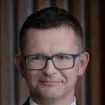- within Food, Drugs, Healthcare and Life Sciences topic(s)
Flexibility is the ability of the power system to respond to changes in energy demand and variable energy production, including from renewable sources such as wind energy.
What is network flexibility?
It is a service provided to the distribution system operator (DSO) to ensure safety and enhance the efficiency of the distribution system's development.
Features:
- the ability to adapt to a dynamically changing reality in a way that allows for a realistic and safe outlook on the future from the perspective of energy security,
- it allows for responses to both power shortages (resulting from, for example, weather conditions or major failures) and surpluses.
- a flexible system can quickly adjust to fluctuations in energy production and consumption,
- it leads to maintaining stable operation of the entire energy network,
- it ensures reliability, efficiency, and a sustainable future for local power systems.
Who can provide it?
- aggregators,
- owners of energy storage systems,
- producers and end consumers.
A certain type of this service is the DSR service described above.
Examples of other network flexibility services include the regulation of network parameters – voltage, frequency, reactive power, which are the responsibility of DSO and therefore they are inclined to order the service of "improving" these parameters by network users, for example, by discharging an energy storage system on demand or when the set network parameters are exceeded (e.g., discharging if the voltage in the supply line drops below the agreed value or charging if the voltage level is above the norm).
These services are not yet available in our country, but they are already present in some European Union countries. Poland must implement them because EU Directives require it, but also due to the quality of the network in Poland.
Sources:
- https://rsplegal.pl/czwartek-z-energia-usluga-elastycznosci-w-swietle-nowelizacji-ustawy-prawo-energetyczne/
- https://koordynatorklastrow.pl/uslugi-elastycznosci/
- https://www.er.agh.edu.pl/media/filer_public/56/f8/56f8d17d-a4c9-41ae-9f9f-eb9c5545f8be/raport_kompendium_wiedzy_o_uslugach_elastycznosci.pdf
- https://www.smart-grids.pl/technologie/4559-elastyczno%C5%9B%C4%87-sieci-szans%C4%85-na-energi%C4%99-elektryczn%C4%85-dost%C4%99pn%C4%85-wsz%C4%99dzie-i-o-ka%C5%BCdej-porze.html
- https://www.cire.pl/pliki/2/2019/wyk_uslug_elastycz.pdf
- https://globenergia.pl/jak-zmieni-sie-system-energetyczny-jesli-rozwiniemy-elastycznosc-i-przyspieszymy-elektryfikacje/
- https://e-magazyny.pl/eksperckim-okiem/czym-sa-uslugi-regulacyjne-i-elastycznosc-sieci-energetycznej/
The content of this article is intended to provide a general guide to the subject matter. Specialist advice should be sought about your specific circumstances.



